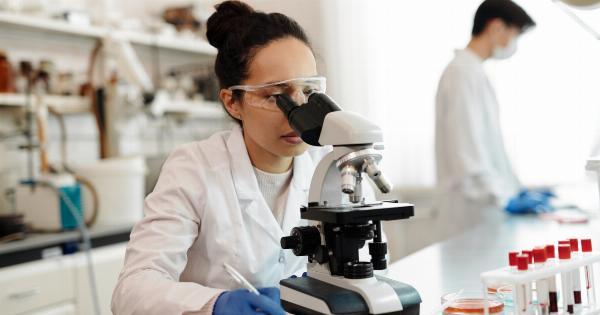Becoming a mother is a unique and rewarding experience that transforms the life of a woman. However, there is a significant difference in age when it comes to motherhood.
Some women choose to have children in their early twenties, while others decide to wait until their thirties or forties. This decision can have a significant impact on the health and longevity of a mother.
The Study
A recent study has shown that older mothers tend to outlive younger mothers.
The research conducted by the University of California, San Diego, found that women who gave birth after the age of 33 had a higher chance of living longer than those who had their last child before the age of 29.
The study analyzed the data of over 28,000 women who participated in the Women’s Health Initiative – a long-term national health study that aims to address major health issues affecting women.
The research team followed these women for over 20 years, looking at their reproductive history and comparing it to their lifespan.
The Findings
The results of the study showed that women who had their last child after the age of 33 were twice as likely to live to the age of 95 compared to other women. Furthermore, they were also significantly less likely to die from heart disease and stroke.
According to the lead author of the study, Dr. Aladdin Shadyab, there are several possible explanations for the association between maternal age and longevity.
One of the primary reasons is that women who have children later in life tend to live a healthier lifestyle, have better access to healthcare, and have higher levels of education and income.
Benefits Of Late Motherhood
There are many benefits of becoming a mother later in life. For one, older mothers are generally more financially stable, established in their careers, and have more time to dedicate to raising their children.
Additionally, they are more likely to have a better support system, including a partner, family, and friends, to help them through the challenges of parenthood.
Moreover, older mothers have a greater appreciation for motherhood and are more likely to savor the moments they spend with their children.
They are also more likely to set clear boundaries and expectations for their children, which can ultimately lead to better outcomes in terms of behavior and achievement.
Risks Of Late Motherhood
Despite the benefits of becoming a mother later in life, there are also some risks associated with delayed motherhood.
For one, older mothers are at a higher risk of having complications during pregnancy and childbirth, including gestational diabetes, hypertension, and preterm birth.
Furthermore, older mothers are more likely to have children with certain health conditions, including Down syndrome and autism. This is due to the higher likelihood of genetic mutations in eggs as women age.
Conclusion
In conclusion, the research shows that becoming a mother later in life can have significant benefits for a woman’s longevity. However, this does not mean that it is necessarily the best choice for every woman.
It is important for women to make informed decisions based on their personal circumstances and health history.
Regardless of when a woman chooses to become a mother, the most important thing is to prioritize her health and well-being in order to give her children the best possible start in life.






























